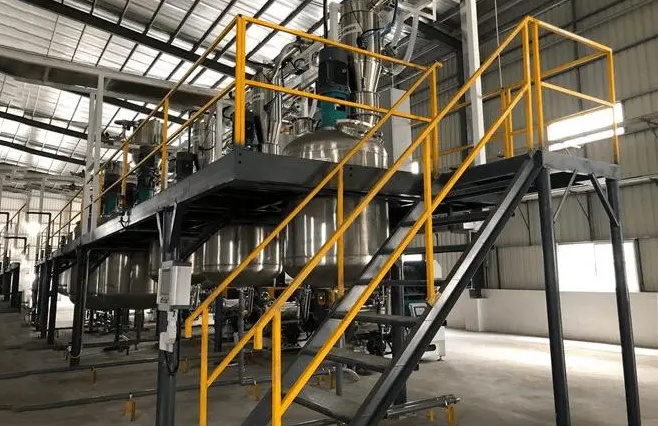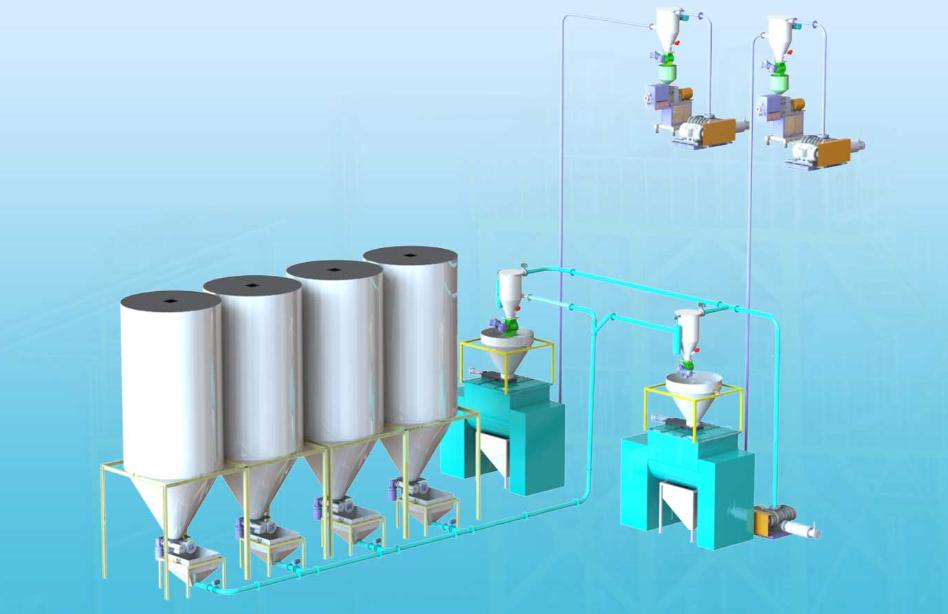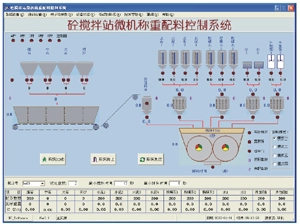Application of Batching Control Systems in Different Industrial Fields
Automatic batching scales equipped with automatic batching control systems usually process material formulas as needed, using belts or spiral materials as conveying tools to complete the proportioning control of loose materials and various data management during the production process according to user needs. Widely applicable for continuous metering and batching operations of carbon and friction materials.
Automatic vs. Manual Batching Control System
- Increase Production Speed Efficiently: Automated batching significantly outpaces manual batching. Operators handling materials manually often can’t match the speed and precision needed for seamless production workflows. Automated systems ensure materials are batched quickly and consistently, aligning perfectly with production line demands.
- Enhance Accuracy: Manual batching frequently leads to errors in bagging, which can disrupt production efficiency. Automated batching systems eliminate this issue by providing precise and consistent results, ensuring the entire process runs smoothly and reliably.
- Improve Accessibility: Transitioning from manual to automated batching may seem daunting, but it’s simpler than expected. Choosing the right system, whether gain-in-weight or loss-in-weight, is crucial. Proper training for operators on the use and maintenance of the system further eases the transition. Embracing automated batching enhances productivity and accuracy, making it a highly beneficial upgrade.
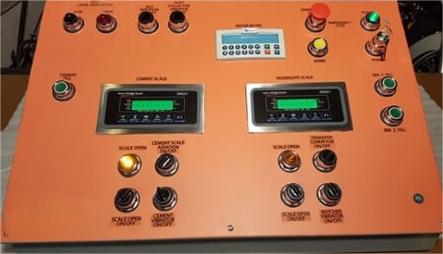
Core Applications of Batching Control Systems
Batching control systems are essential in various industrial sectors where precision, consistency, and efficiency in the mixing and measuring of raw materials are crucial. Here, we explore the specific applications of batching control systems across different industries, demonstrating how these systems contribute to product quality and operational efficiency.
1. Building Materials Industry
Application Cases
In the building materials industry, the production of materials such as cement, concrete, and asphalt relies heavily on the precise mixing of raw materials. Batching control systems play a critical role in ensuring that the correct proportions of cement, water, sand, and aggregates are used to produce concrete with the desired strength and durability.
- Concrete Production: For example, in a concrete batching plant, the system accurately measures and combines the ingredients needed to produce various grades of concrete. The system ensures that the concrete mixture meets the required specifications for specific construction projects, whether it’s for a residential building, a bridge, or a high-rise structure.
- Cement Manufacturing: In cement manufacturing, batching control systems help in blending the right amounts of limestone, clay, and other additives. This precise control is vital to achieving the desired chemical composition and physical properties of the cement.
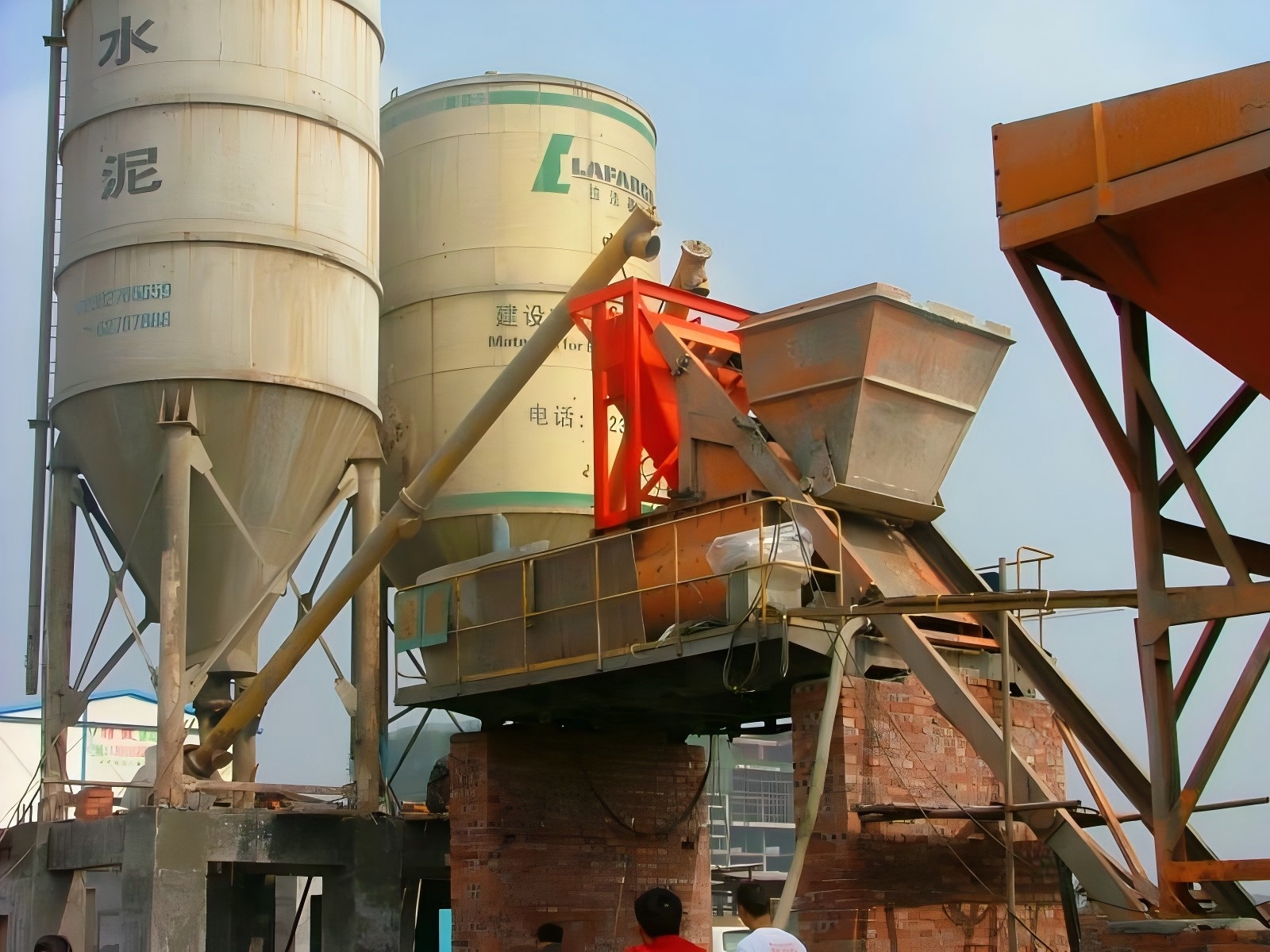
2. Chemical Industry
Application Cases
The chemical industry encompasses a wide range of production processes, all of which require precise control over the proportions of chemical raw materials to ensure successful reactions and product quality.
- Paint and Coating Production: In the production of paints and coatings, batching control systems are used to mix pigments, solvents, and binders in exact ratios. This ensures that the final product has the desired color, consistency, and performance characteristics.
- Adhesive Manufacturing: In adhesive production, the accurate combination of polymers, resins, and other chemicals is crucial for creating products with the right bonding strength and curing properties. Batching control systems automate this process, reducing the risk of human error and enhancing product reliability.
3. Environmental Protection Industry
Application Cases
In the environmental protection sector, batching control systems are used to manage the precise addition of chemicals and other materials in processes aimed at pollution control and environmental remediation.
- Water Treatment: In wastewater treatment plants, batching control systems regulate the addition of coagulants, flocculants, and disinfectants to ensure effective treatment of the water. Accurate dosing is essential to meet regulatory standards and protect public health.
- Air Pollution Control: For air pollution control systems, batching control systems manage the input of sorbents and reactants used in scrubbers and other filtration technologies. This ensures that emissions meet environmental standards and reduces the release of harmful pollutants into the atmosphere.
4. Food Processing Industry
Application Cases
The food processing industry demands high levels of precision and hygiene to ensure the safety, taste, and consistency of food products. Batching control systems are indispensable in achieving these standards.
- Bakery Products: In the production of bakery items such as bread, cakes, and pastries, batching control systems automate the measurement and mixing of flour, sugar, yeast, and other ingredients. This ensures that each batch has a uniform texture and flavor, essential for maintaining product quality and customer satisfaction.
- Beverage Manufacturing: In beverage production, whether it’s for soft drinks, juices, or alcoholic beverages, precise control over the formulation is crucial. Batching control systems ensure that the right proportions of water, flavorings, sweeteners, and preservatives are used, resulting in consistent taste and quality.
- Snack Foods: For snack food production, batching control systems manage the combination of various ingredients, such as spices, oils, and additives. This ensures that the final product meets taste expectations and adheres to nutritional standards.

Choosing the Right Batching Scale
The right batching scale ensures accuracy, efficiency, and compliance with industry standards. Here are key factors to consider when choosing the ideal batching scale for your industrial application.
1. Industry Requirements
Different industries have unique requirements for batching processes. Understanding these requirements is the first step in choosing the right batching scale.
- Food and Beverage: In the food and beverage industry, hygiene and precision are paramount. Scales must be made of food-grade materials and be easy to clean to prevent contamination. High accuracy is required to ensure consistency in recipes and flavor.
- Pharmaceuticals: For pharmaceutical applications, the scales must comply with stringent regulatory standards such as Good Manufacturing Practices (GMP). They should offer high precision to ensure the correct dosage of active ingredients.
- Chemicals: In the chemical industry, scales need to handle corrosive and hazardous materials. Durability and the ability to function in harsh environments are essential considerations.
- Construction: Scales used in construction must handle large volumes of heavy materials like cement and aggregates. They should be robust and capable of withstanding tough operational conditions.
2. Scale Capacity
The scale capacity should align with the volume of materials typically processed in your operation.
- Small-Scale Operations: For small-scale production, such as a boutique bakery or a small chemical lab, a scale with a lower capacity but high precision might be sufficient.
- Large-Scale Operations: In contrast, large-scale operations, such as concrete batching plants or large food processing facilities, require scales with higher capacities to handle bulk materials efficiently. Overloading a scale can lead to inaccuracies and equipment damage, so it’s crucial to choose a scale that matches your volume requirements.

3. Precision and Accuracy
The precision and accuracy of the scale are critical, especially in industries where even slight deviations can impact product quality and safety.
- High-Precision Needs: For industries like pharmaceuticals and food processing, scales with high precision and accuracy are essential. Look for scales with low tolerance levels to ensure that each batch meets the required specifications.
- General Precision: In less sensitive applications, such as certain construction or chemical processes, a scale with standard precision might be sufficient. However, it’s important to balance precision with cost, as higher precision scales are typically more expensive.
4. Integration with Existing Systems
Your chosen batching scale should integrate seamlessly with your existing production and control systems.
- Automation Compatibility: Ensure that the scale can communicate with your batching control system, allowing for automated data exchange and control. This integration can significantly enhance efficiency and reduce the risk of human error.
- Software Compatibility: Check if the scale’s software is compatible with your existing systems. This includes ensuring that the scale can work with your current data management and reporting software to streamline operations and improve traceability.
5. Regulatory Compliance
Compliance with industry regulations and standards is non-negotiable, especially in highly regulated industries.
- Pharmaceuticals and Food: In the pharmaceutical and food industries, scales must meet regulatory standards such as those set by the FDA or EMA. This includes requirements for precision, material construction, and traceability.
- Environmental and Safety Standards: In industries dealing with hazardous materials, ensure that the scale complies with environmental and safety regulations to prevent accidents and ensure safe operations.
6. Durability and Maintenance
The durability of the scale and its maintenance requirements are also important considerations.
- Operational Environment: Choose a scale that can withstand the operational environment of your industry. For instance, scales used in construction should be robust and resistant to dust and moisture, while those used in food processing should be easy to clean and sanitize.
- Maintenance Needs: Consider the maintenance needs of the scale. Scales that require frequent calibration or have high maintenance demands can lead to increased downtime and operational costs.
Conclusion
Batching control systems provide the accuracy and efficiency needed to produce high-quality products consistently. From building materials and chemicals to environmental protection and food processing, these systems ensure that raw materials are mixed and measured precisely according to the required specifications. By automating these critical processes, batching control systems enhance product quality, reduce waste, and ensure compliance with industry standards and regulations.
For more information about the batching control system, please contact Bincen.

